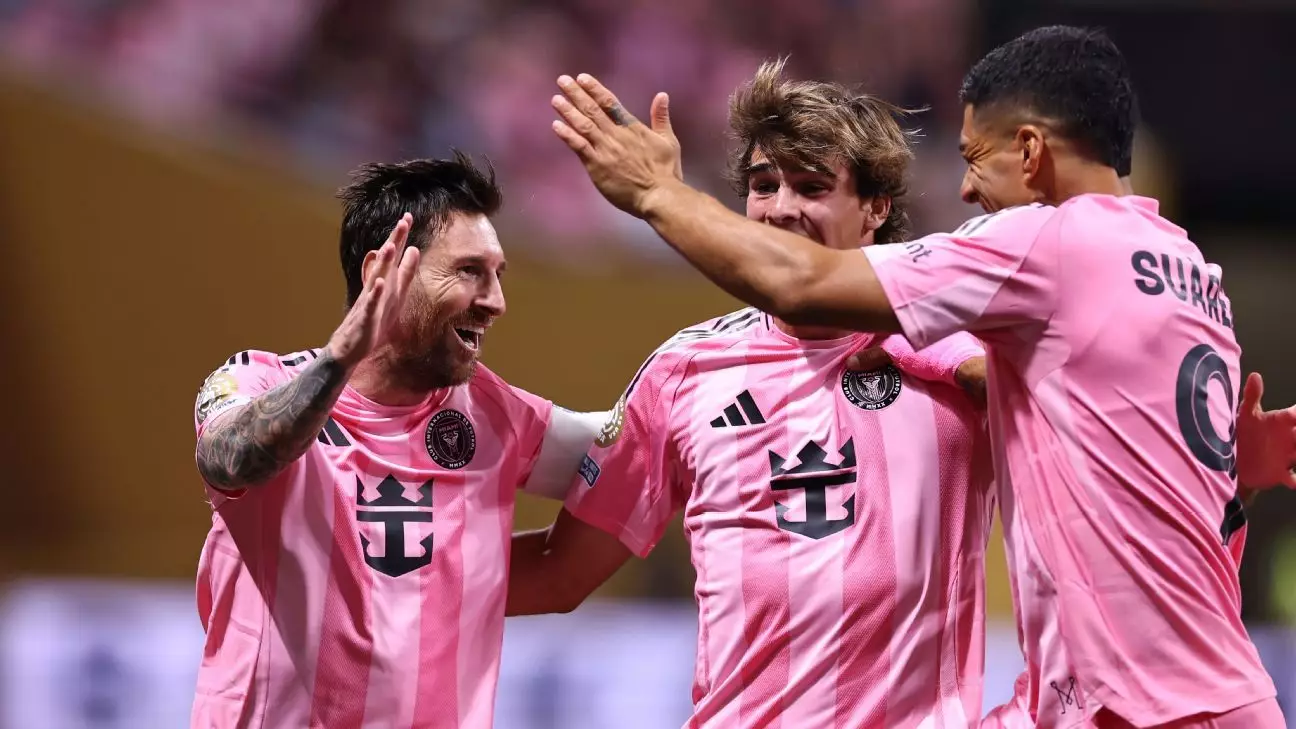The recent agreement between Major League Soccer (MLS) players and the league marks a pivotal milestone in the ongoing pursuit of equitable compensation in American soccer. Historically, MLS players have faced restrictive conditions dictated by the Collective Bargaining Agreement (CBA), which limited their share of prize money from international tournaments like the FIFA Club World Cup. Under the previous terms, players received only 50% of the outside tournament earnings, capped at a modest $1 million, regardless of their performance or the tournament’s total purse.
This cap grossly undervalued the contributions and efforts of players on the global stage. It ignored the reality that the prize money from such tournaments can fluctuate dramatically based on team progress and overall tournament earnings. The new agreement signals a recognition that MLS players deserve a fairer slice of the rewards generated from their participation in prestigious competitions. More importantly, it suggests a shift in how the league values its athlete’s contributions and the importance of putting players’ interests at the forefront.
By increasing the minimum payout by 40% over the previous cap and removing limits on earnings from performance-based bonuses, MLS is notably stepping into a new era—one where player effort and success are directly rewarded. Such a move not only boosts individual motivation but also elevates the league’s credibility on the international stage. If MLS wants to compete with the world’s top leagues—like the Premier League or La Liga—it must demonstrate that its players are valued and fairly compensated.
From Negotiation Stalemate to Progressive Agreement
The journey toward this breakthrough, however, wasn’t straightforward. Initial negotiations failed to yield an agreement before the FIFA Club World Cup commenced, highlighting challenges in aligning league management with players’ unions. The discord underscored the friction inherent in balancing league profitability with players’ earnings. Yet, persistence and dialogue eventually bore fruit.
The revised terms introduce a new revenue-sharing model: players on the three MLS teams participating in the tournament will now receive 20% of performance-related payments for wins, draws, and round advancements. This structure moves beyond the static fixed payout model, aligning players’ incentives with tournament success. Additionally, the league has committed to providing a minimum of 30% of all Club World Cup performance-based bonus money to players, with no cap—an unprecedented move that empowers players to benefit substantially from their accomplishments.
This progressive stance reflects an understanding that MLS players deserve recognition proportional to their roles on the global stage. It also signals a willingness from league management to prioritize athlete welfare, acknowledging their contributions as central to the league’s ambitions. While the negotiations were tense, their resolution demonstrates a commitment to evolving beyond outdated models and fostering a culture of fairness.
What This Means for the Future of MLS and American Soccer
This landmark agreement serves as a reminder that American soccer is entering a new, more ambitious chapter. The Club World Cup, often overshadowed by European competitions, is an opportunity for MLS to showcase its talent and elevate its standing internationally. By ensuring players receive more equitable compensation, MLS not only boosts morale but also signals to prospective talent that the league values their contributions.
Furthermore, it underscores the importance of aligning league policies with the realities of modern sports economics. The move to abolish caps on earnings from performance bonuses is particularly significant—it recognizes that player effort and success should directly translate into tangible financial rewards, fostering competitive excellence and professional pride.
However, the agreement is only a step in an ongoing journey. The next edition of the tournament, scheduled for 2029, will test MLS’s commitment to maintaining and expanding these gains amid evolving economic and competitive pressures. Additionally, the current CBA’s expiration in 2028 leaves room for further negotiations, wherein players and the league can cement their shared interests and refine future revenue-sharing structures.
Ultimately, this development signals a broader cultural shift—prioritizing fairness, respect, and recognition for the athletes driving the league’s growth. It’s a bold statement that MLS is dedicated to establishing itself as a serious contender in the global football landscape, not just through quality play but by fostering an environment where players are empowered and rewarded accordingly.

